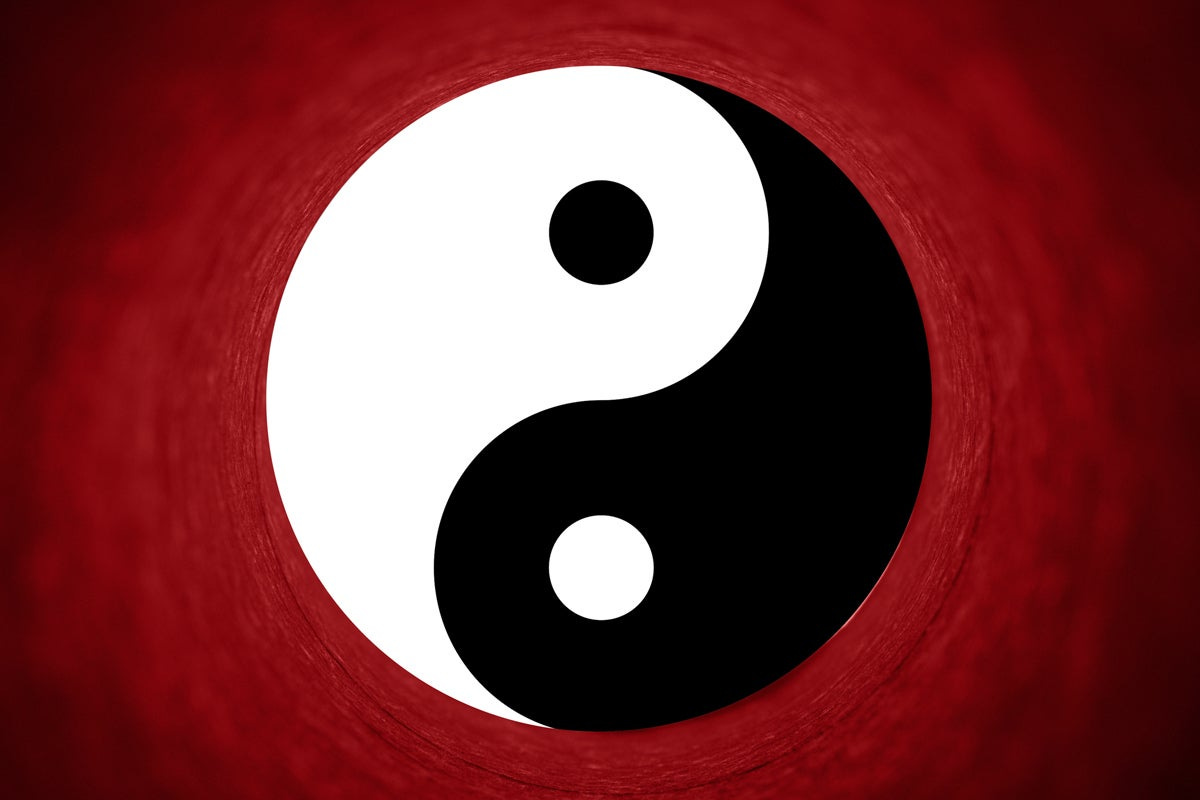I have decided to start writing book reviews. Both for myself and for you. Please do message me if you have different interpretations or ideas about the book.
You know ‘Yin and Yang?’
The hippie-looking circle that represents the dual nature of everything in existence. Polarities like male & female, happiness & sadness, and order & chaos are examples of the dichotomous nature of Yin and Yang. One cannot exist without the other.
Yin and Yang is a key symbol of Taoism - an ancient Chinese philosophy that emphasises embracing acceptance and adhering to the dynamic balance of Yin and Yang. You’ve just got to go with the way of the universe (known as ‘the Tao’). In mundane activities like washing plates or brushing one’s teeth, Taoists embrace the principles of Yin and Yang, recognising the importance of balance and harmony as they engage in these simple yet profound daily practices.
Just last week I was gifted a book called ‘The Tao of Pooh.’ The generous book-giver is an extremely intentional person; so I knew there was a reason behind the selection of this book. As such, and also due to its mere 150 pages, I briskly finished it on the plane home the other day.
Today, I am sharing my experience of ‘The Tao of Pooh’ with you.
🚀 The Book in 3 Sentences
A book that uses the tales of Winnie the Pooh to explore Taoist wisdom.
How to become a Taoist, via a western child’s story.
In what I believe to be a mistake, the author implies that the reader should stumble through life without worrying about the future, taking minimal action, under the assumption that everything will undoubtedly be okay in the end.
📖 Who Should Read It?
Those looking for a short philosophical read.
Fans of Winnie the Pooh.
Those interested in Eastern philosophy and religions.
✍️ My Top Quotes
“Things just happen in the right way, at the right time. At least when you let them, when you work with circumstances instead of saying, 'This isn't supposed to be happening this way,' and trying harder to make it happen some other way.”
“The surest way to become tense, awkward, and confused is to develop a mind that tries too hard - one that thinks too much.”
“You'd be surprised how many people violate this simple principle every day of their lives and try to fit square pegs into round holes, ignoring the clear reality that Things Are As They Are.”
“The main problem with this great obsession for saving time is very simple: you can't save time. You can only spend it. But you can spend it wisely or foolishly.”
“How can you get very far, If you don't know who you are?”
“Knowledge doesn't really care, wisdom does.”
“If people were superior to animals, they'd take good care of them.”
“The wise are who they are. They work with what they've got and do what they can do. The wise know their limitations; the foolish do not.”
“A way of life that keeps saying 'Around the next corner, above the next step,' works against the natural order of things and makes it so difficult to be happy and good.”
🍀Takeaways and How the Book Changed Me
Effective imagery helped me better relate to concepts. Examples include:
Uncarved block - a metaphor for the state of simplicity, naturalness, and purity.
Water - Water is a recurring metaphor representing the Tao. It is fluid, adaptable, and effortlessly finds its way around obstacles.
Bisy Backson - Someone who is always on the move; a play on the words ‘I’m Busy, Back Soon.’ A Bisy Backson is typically someone who lives for the future, and struggles to indulge in the present. They think constant activity will make them happy.
I was introduced to the concept of ‘Wu Wei’ - a component of Taoism that translates to something like ‘do nothing;’ that emphasises aligning oneself with the flow of the ‘Tao.’
It’s easier to change a negative to a positive than it is to erase a negative.
Living a fun life is a choice. We all go through our regular days filled with stress, but how we interpret and react to these variables is what sticks.
The simple explanation is often the right one. Overcomplicating solutions will often keep you stuck in the same place getting more overwhelmed by the second.
Rating out of 10:
5/10 - Bang on the middle. A good quick read.
Benjamin Hoffman took one of the most recognised characters in the world and used him to teach valuable lessons. However, I often struggled to keep track of where the story was at and who was who. The author sometimes took the direction to a completely random scenario or conversation. There’s also a good point to be made that the author smugly encourages complacency; under the assumption that everything will work out just the way it is supposed to - the Tao.
But all-in-all, it was an engaging Western perspective of Taoism, in a friendly-to-read manner. It singles out trusting your instincts and being open to spontaneity as key ingredients to a prosperous life.
More Book Reviews
- The Creative Act: A Way of Being
- Maus




